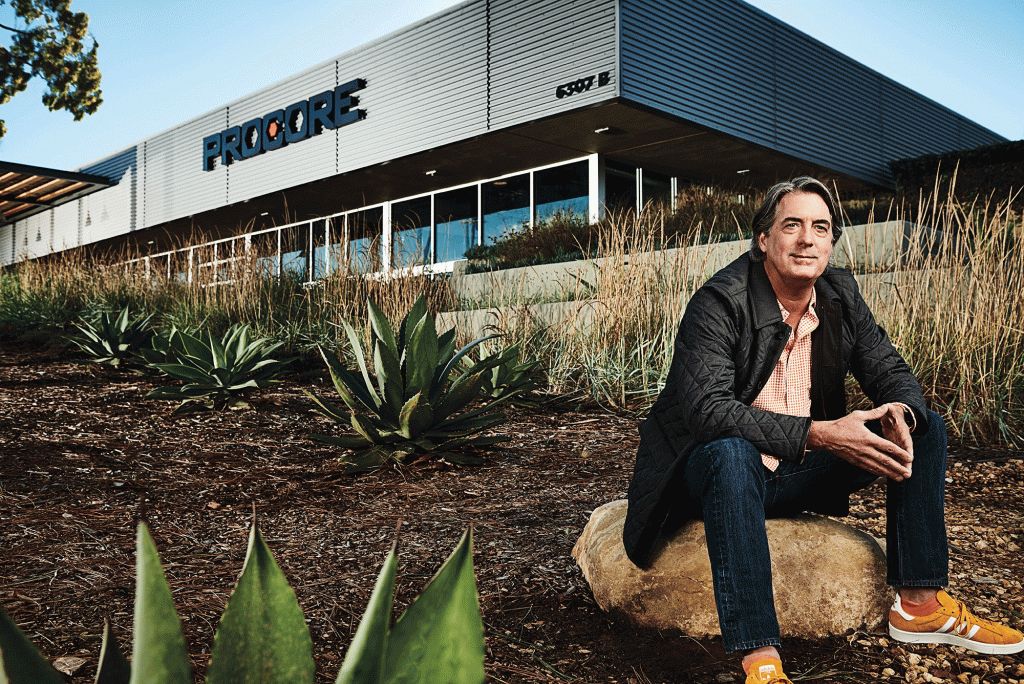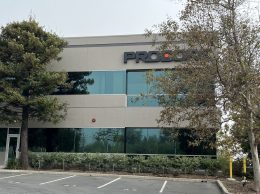With IPO on shelf, Carpinteria’s Procore trims staff
Construction companies facing more than their usual share of cyclical uncertainty are turning in larger numbers than ever to software solutions that promise efficiency, creating new opportunities for firms like Procore.
However, Carpinteria-based Procore recently announced the layoff of dozens of workers, the latest in a series of steps it has taken to respond to the COVID-19 pandemic and prepare to launch on the public market.
“COVID is acting as an accelerant to a lot of changes to the construction industry,” said Brendan Fitzgerald, associate partner at management consulting and research firm McKinsey.
That’s causing contractors, specialists, engineers, “everyone across the construction value chain to adopt more technology,” he said. “The area we see the biggest increase in investment is in tech.”
Procore filed for an initial public offering in late February, but quickly moved to halt its plans as the COVID-19 pandemic unfolded in the U.S. just weeks later. It confirmed in late July it had raised $160 million in Series I funding, a deal that was rumored to have valued the company at $5 billion.
“From a financial standpoint, Procore’s ability to support the construction industry has never been stronger,” CEO Tooey Courtemanche wrote in a blog post July 28. The funding ”has given us the ability to further invest in product development and other strategic initiatives, as we continue to hire top technical talent and assess new market opportunities,” he added.

The company has ramped up offerings that help customers track employees, adopt new safety regulations and work with insurers to track and minimize risk factors. It has also made investments in artificial intelligence tools, including the acquisition of a Los Angeles area language assistant software, Avata Intelligence.
Courtemanche said Procore’s layoffs mean eliminating a “low single digit percentage” of roles and shifting resources toward its research and development efforts.
The team on the South Coast numbers more than 850 employees, out of its 1,800 global employees.
According to the February prospectus, Procore had around $289 million in revenue in 2019, landing it among the region’s fastest growing companies. Net loss for the year was $83 million. The company had previously raised some $240 million in private capital over nine investment rounds.
But the recent months have been a roller coaster for the industry to which its software products cater, Ken Simonson, chief economist with the Associated General Contractors of America, told the Business Times.
Despite being considered essential work, construction firms lost around 1.1 million jobs nationwide in March and April, around 14 percent of the industry’s overall employment.
More than half of those bounced back in May and June as employers received government stimulus, and around a fifth of the companies surveyed by ACG said they had launched new or expanded projects.
But that recovery has stalled, Simonson said, leading to concerns that once existing projects wind down or are halted by pandemic restrictions, “there will be less and less new business and companies will wind up shrinking again.”
Many states reopened in that time period, only to have to retrench as case numbers soared again, an environment that could prove more damaging for the construction industry than a prolonged shutdown.
“Nothing makes investors more cautious than uncertainty,” Simonson said. “Until they know there will be sustained demand for the additional space they would be investing in, they will hold off.”
That’s led to an increase in demand for services that can help companies large and small keep operations lean and manage projects virtually, Fitzgerald said.
Tools to support job safety and help track employees as they come and go have been at the top of the industry’s wish list, but software and technology investments have been strong across the board, with some 60 percent of the industry saying they plan to make new upgrades.
“Even things that are maybe less immediate, like e-invoicing, we’re starting to hear ways that COVID has accelerated adoption,” Fitzgerald said. “For many of these things, the barrier was not lack of technology, it was lack of will.”
Companies like Procore that can leverage their platforms to provide data analytics will find strong demand, Fitzgerald and Simonson both said. Software providers will have to prove quick returns on investment, though, to gain market share in such a turbulent environment for their customers.
“All of those trends are very negative for nonresidential construction and for the ability of companies to invest in technology,” Simonson said. “Cash flow is the priority. Any investment in tech is going to be filtered through that lens.”
As the Software-as-a-Service model shifts those costs from upfront capital expenditures to regular operating expenses, the investments become more likely to pencil out for the construction industry.
“The industry runs on pretty thin margins and it is historically a pretty cyclical industry,” Fitzgerald said. While there are still costs associated with integration and training “in many cases, the value proposition is pretty clear.”
— Contact Marissa Nall at [email protected]












